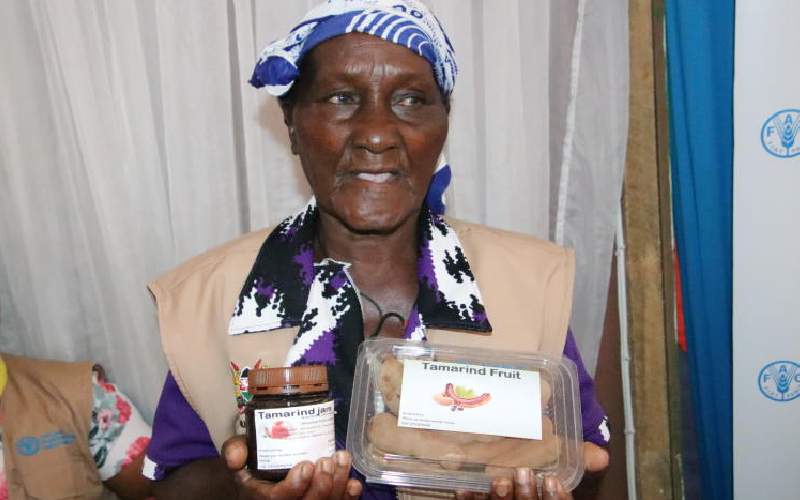×
The Standard e-Paper
Fearless, Trusted News

Ruth Kitavi, 74, the chairlady of Muuo wa Sombe women group, shows some of the products from wild fruits. [Stephen Nzioka, Standard]
As communities in rural areas grapple with effects of climate change, a women’s group has adopted innovative value addition techniques on wild fruits and drought-resistant crops to build resilience and improve food security.